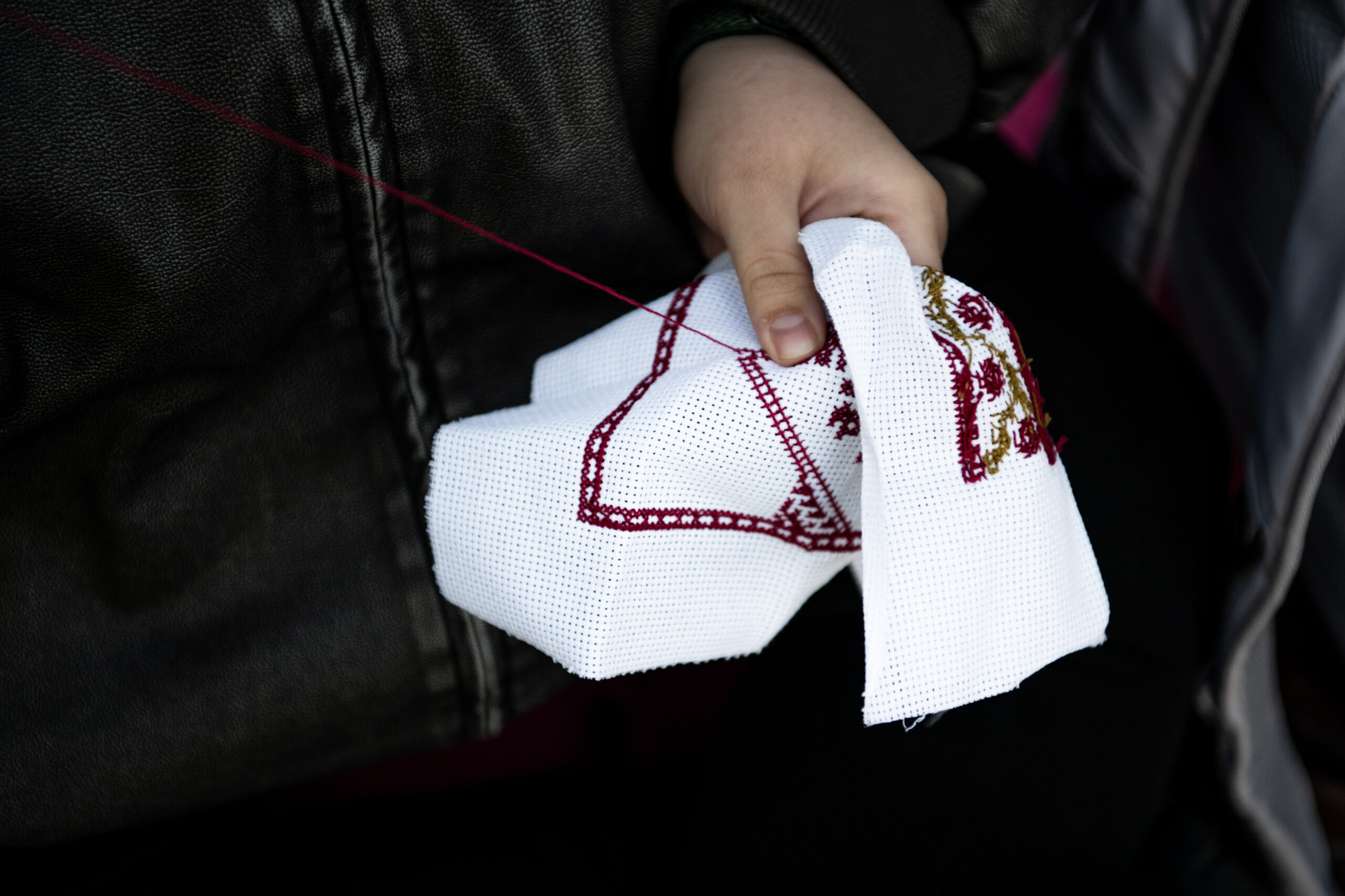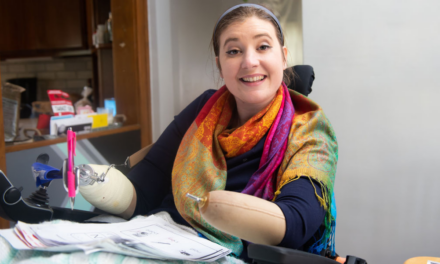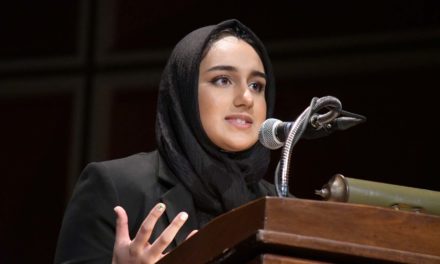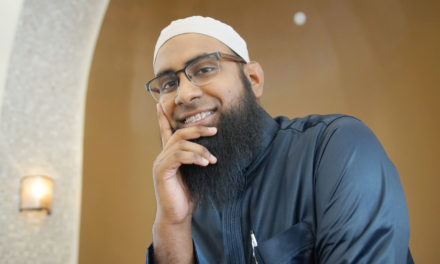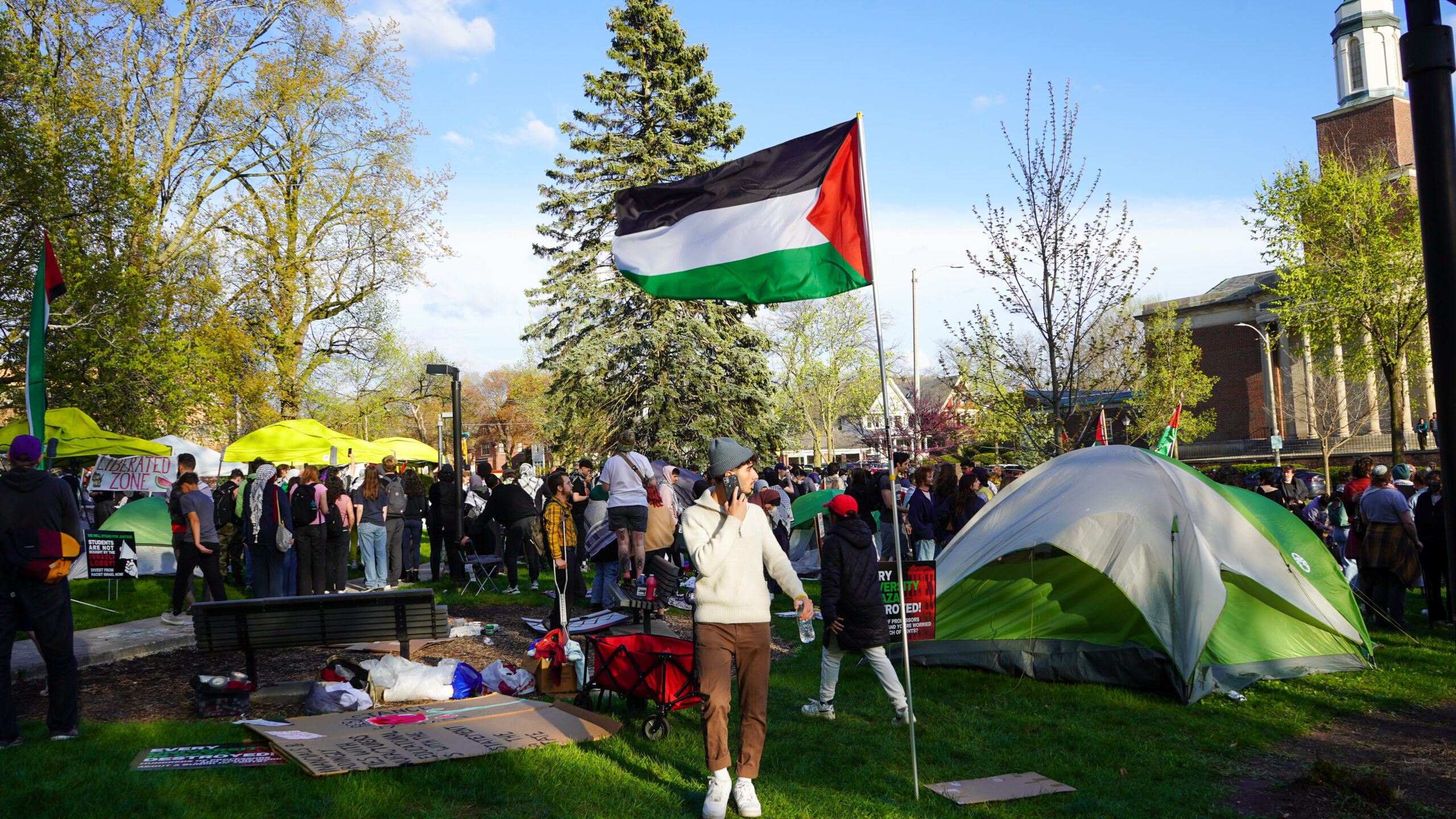
Photo by Kamal Moon
An encampment established April 29 at the University of Wisconsin-Milwaukee to call for a ceasefire in Gaza and divestment in Israel has been a peaceful place of teach-ins, shared dinners and quiet study areas for students finishing final exams.
When University of Wisconsin-Milwaukee students set up an encampment on campus April 29 to call for a ceasefire in Gaza and UWM divestment from Israel, two Brookfield mothers joined them.
Since then, Rana Alhourane and Nawal Ilili have been at the encampment almost every day, motivated by the deaths of more than 40,000 Palestinian civilians. They want to show solidarity with the UWM students calling for a ceasefire, they told the Wisconsin Muslim Journal Monday.
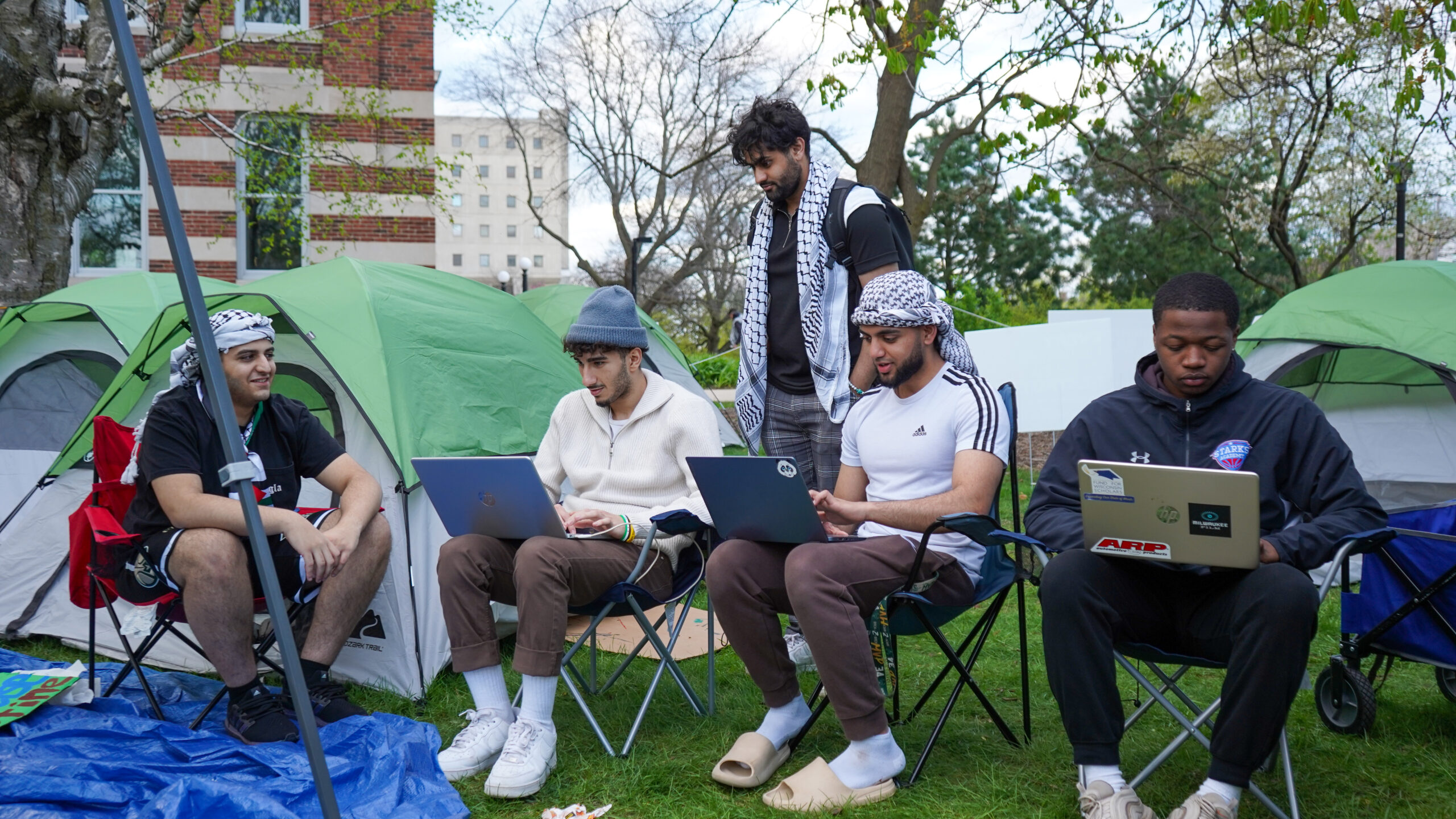
Photo by Kamal Moon
Israel launched the most brutal retaliation in modern time, reported Oxfam, a human rights organization, in January. Following the Oct. 7 Hamas attack that resulted in the deaths of 1,200 and the taking of 240 hostages, “Israel’s military is killing Palestinians at an average rate of 250 people a day, which exceeds the daily death toll of any other major conflict in recent years,” the report says.

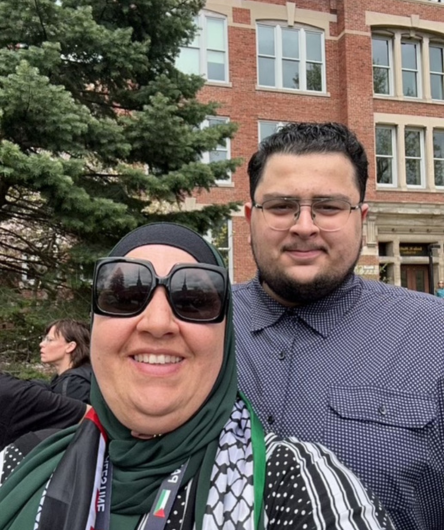
Photos courtesy of Rana Alhourane
Nawal Ilili with her son Adam; Rana Alhourane with her son Ali
Alhourane and Ilili saw news about crackdowns on student protesters around the country, including at UW-Madison, where 34 protesters were arrested. They chose to stand in solidarity with their sons and other UWM students who risked their safety, university enrollment and futures to take a moral stand, they said.
Alhourane and Ilili spoke Monday in an interview with the Wisconsin Muslim Journal at the Islamic Society of Milwaukee—Brookfield, following afternoon prayers. They discussed their feelings and fears for their sons. (Alhourane’s son Ali is his second year and Ilili’s son Adam, his third).
Below are the paraphrased highlights of the interview.
With repercussions against student protesters across the nation, including arrest, suspension and expulsion, do you have fear for your sons?
Alhourane: When you hear how some universities are treating the kids, that’s another reason I went right away. Monday morning, I left everything. They need to see support from the community, from their parents.
We live in a country of freedom but understanding our rights is confusing. They have the right to protest, then they don’t. They have the right to post their opinions on social media, then they don’t.
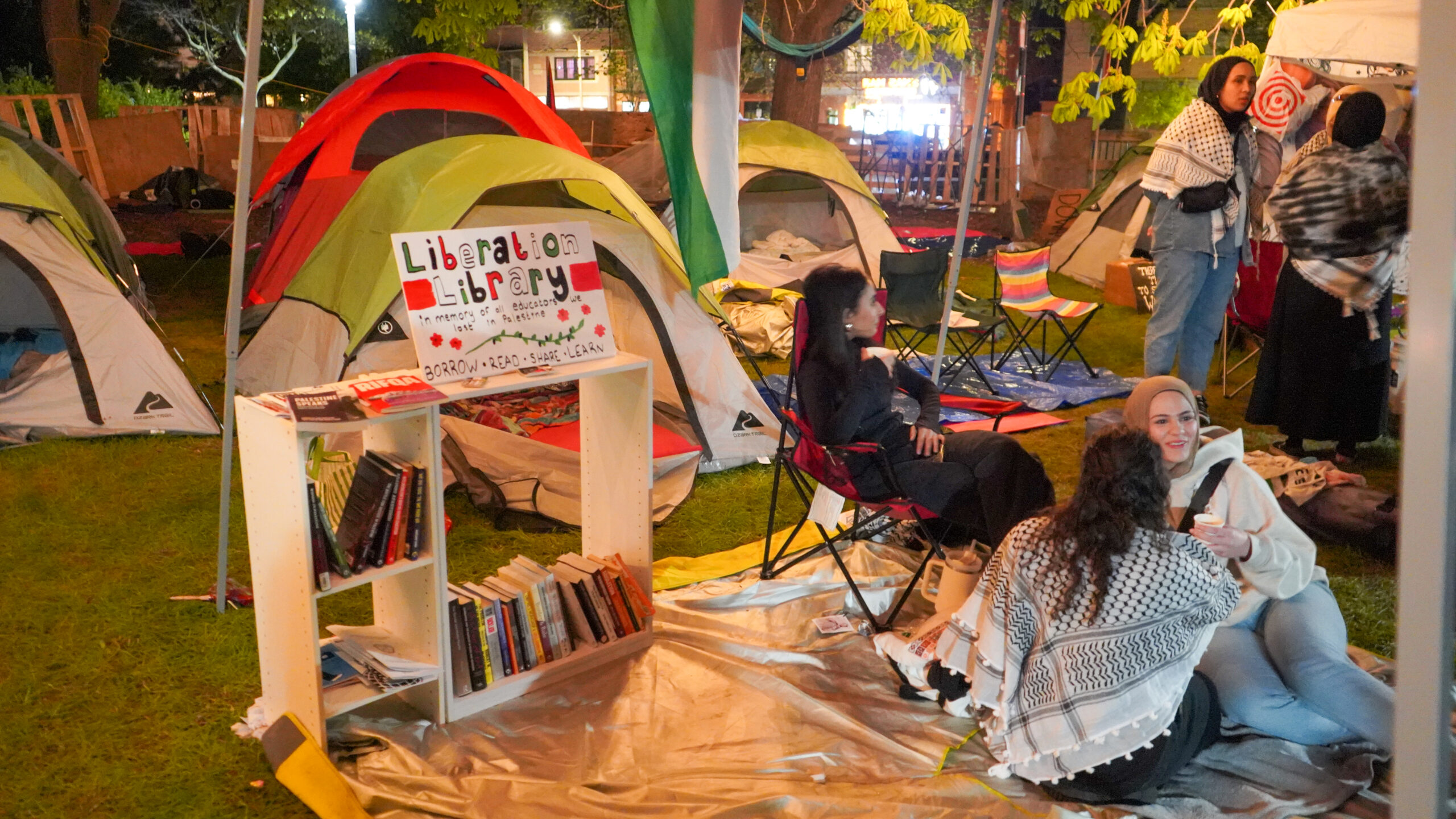
Photo by Kamal Moon
Ilili: Everything is in the hand of Allah, first of all. If something happens to them, it’s going to be from Allah. You have to do what’s right, to stand with our brothers and sisters in Palestine. This is what we can do.
I’m telling my son, “Don’t be scared.”
I don’t have to tell him to keep up with his responsibilities. He’s the first one to tell me he has finals. After each class, he goes to the encampment to stand with the other students. The other day he told me he wanted to sleep there because they needed people to help with nights.
Of course, I worry about him, about his finals. Like many students, he took his work and studied there.

Photo by Kamal Moon
How did you decide to protest at UWM yourself?
Alhourane: On the Sunday night before the protest Monday, my daughter, who is in high school, saw a post about the protest on Instagram and sent it to me. My son Ali told me he was planning to go. He didn’t know I decided to go as well.
Ilili: When you see what is happening, it doesn’t matter who you are—a student or a mother, a Palestinian or an Arab or a Muslim or anyone else—your heart hurts. How many kids in Gaza die every day? Anybody can feel that.
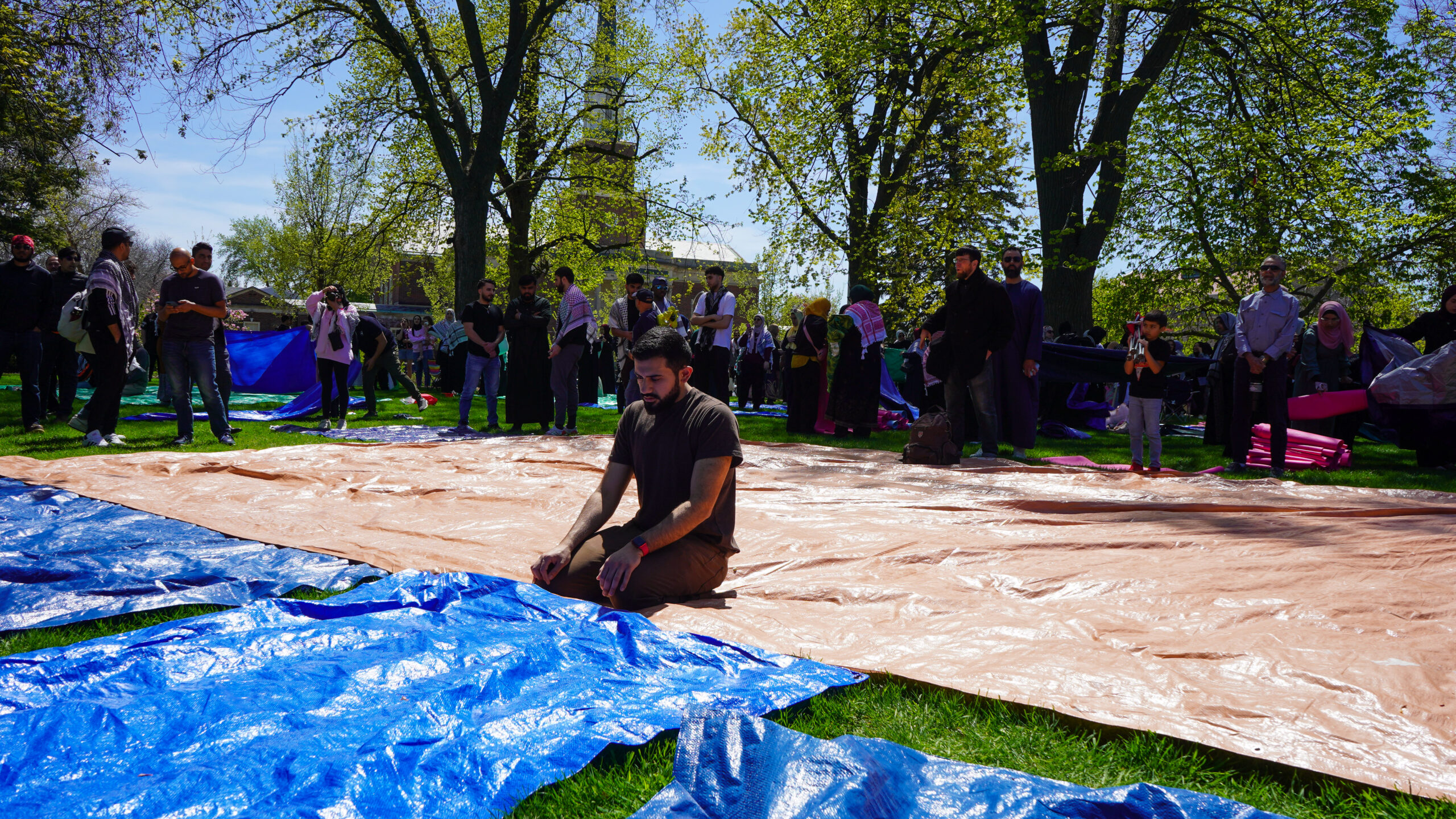
Photo by Kamal Moon
What is the atmosphere at the encampment like?
Ilili: It’s like one big family. As soon as you enter it, you share a special feeling. Everyone shares the same feeling.
Alhourane: Other students are taking the same risks and 50% of them are non-Muslims. They all understand we need to care about other humans, to take a stand for these causes.
They have different majors and different backgrounds, but they are all sharing the same idea—to resist what is going on in Gaza.

Photo by Kamal Moon
Ilili: They want the killing in Gaza to stop. They want the encampment to stay peaceful. They don’t want trouble from the police or the university. And, of course, we don’t want anything to happen to our kids.
Alhourane: They’re not kids.
Ilili: They’re our kids.
Alhourane: They’re heroes. They are brave.
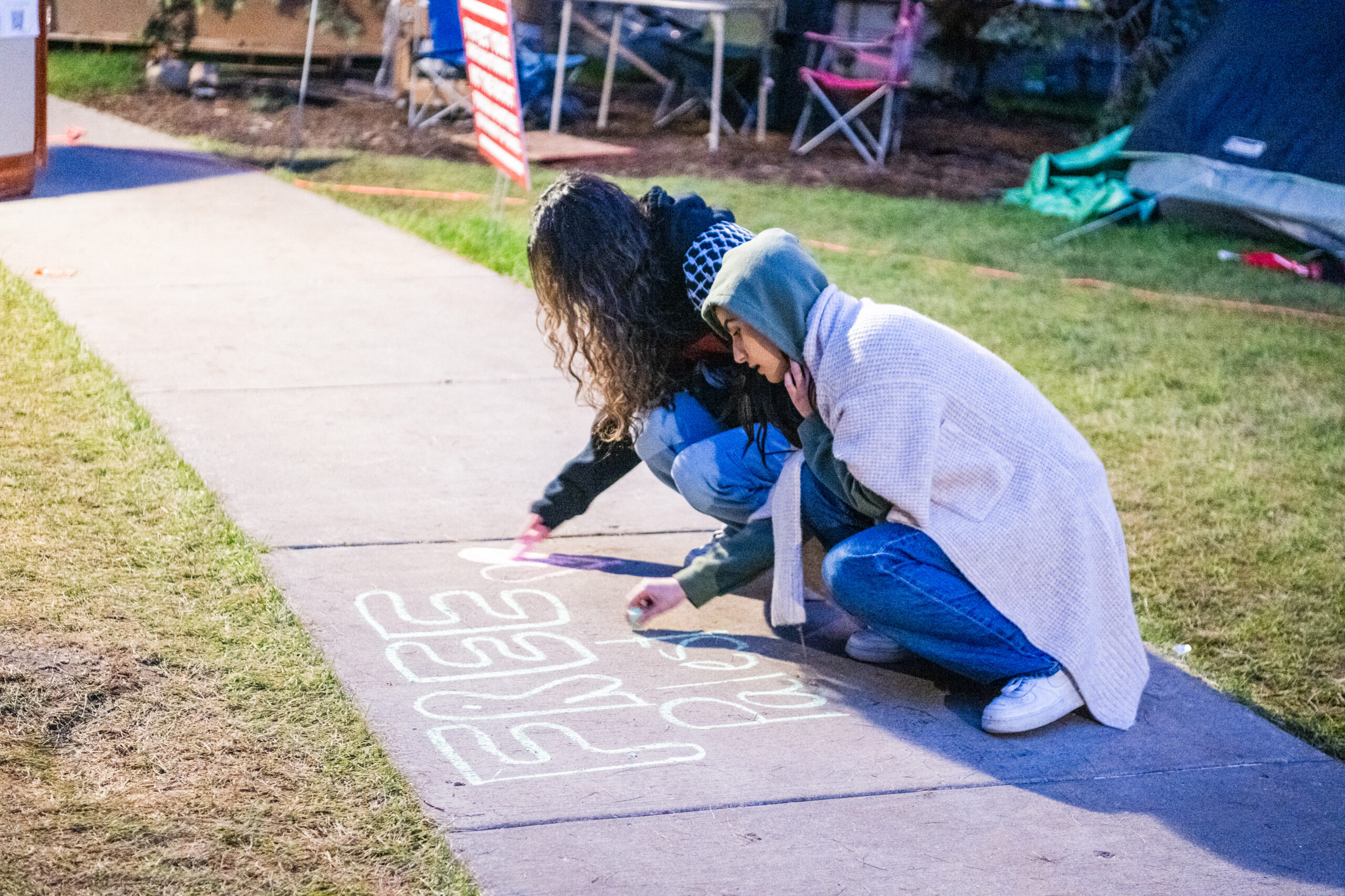
Photo by Mouna Photography
Ilili: On Friday afternoon, a bunch of people came from a church and gave a talk. A lady had pictures of children who died in Gaza. (Christians for Justice in Palestine made prayer cards with photos of Palestinian children killed in Gaza.) She handed them out and we helped hang them on a curtain. We hung hundreds.
That night, members of the Jewish community were there, sharing their prayer and sharing food. It was nice.
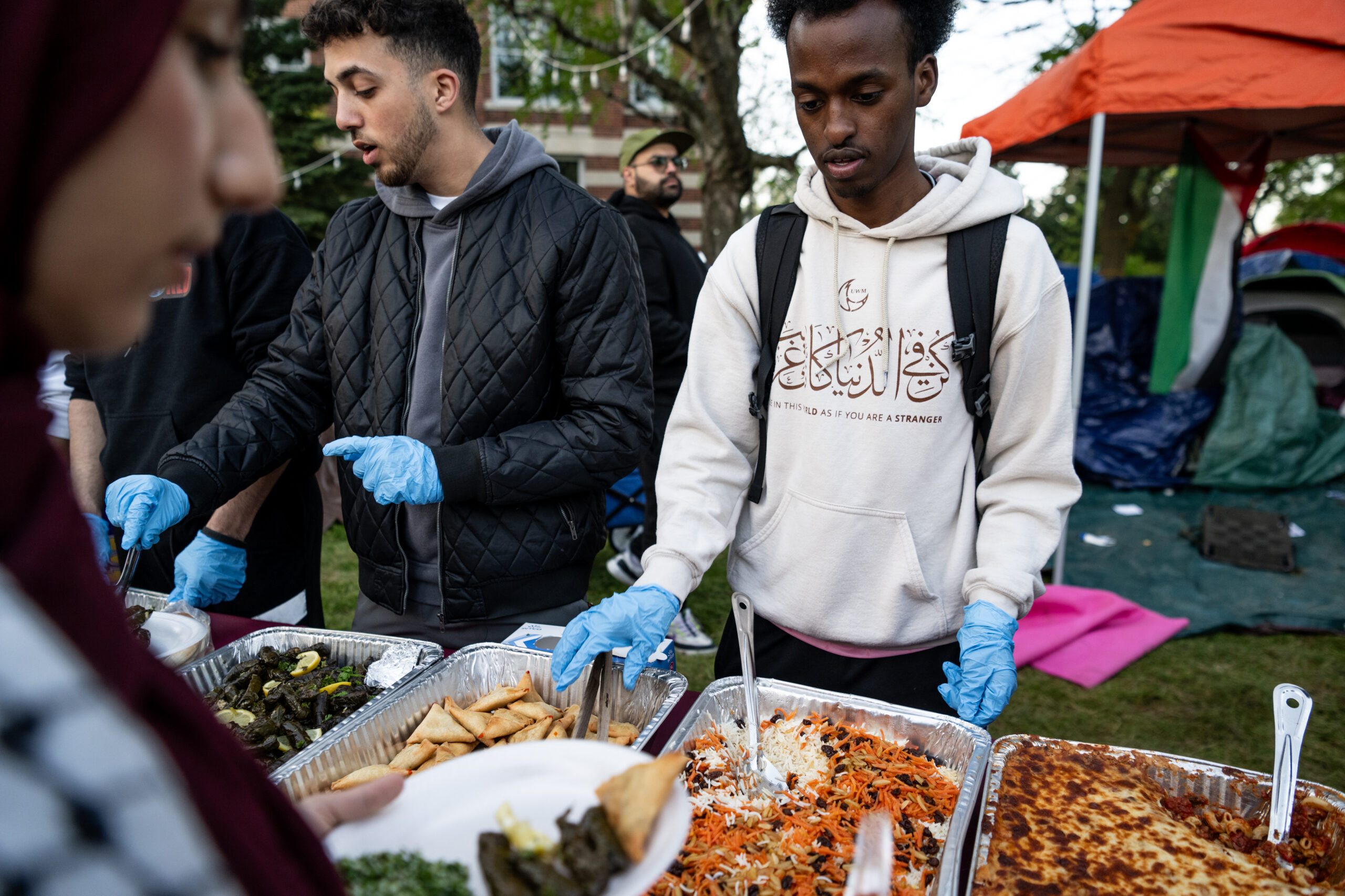
Photo by Mouna Photography
What is it like for you to be at the protest?
Alhourane: Honestly, it’s not in our culture for women, especially mothers, to protest. But when you see your babies going and facing danger, what are you going to do? Sit at home? Of course not!
I’m so proud. I’m proud of my son. I’m proud of the all the students. I’m proud of the student leaders.
Ilili: We are proud of everyone there.
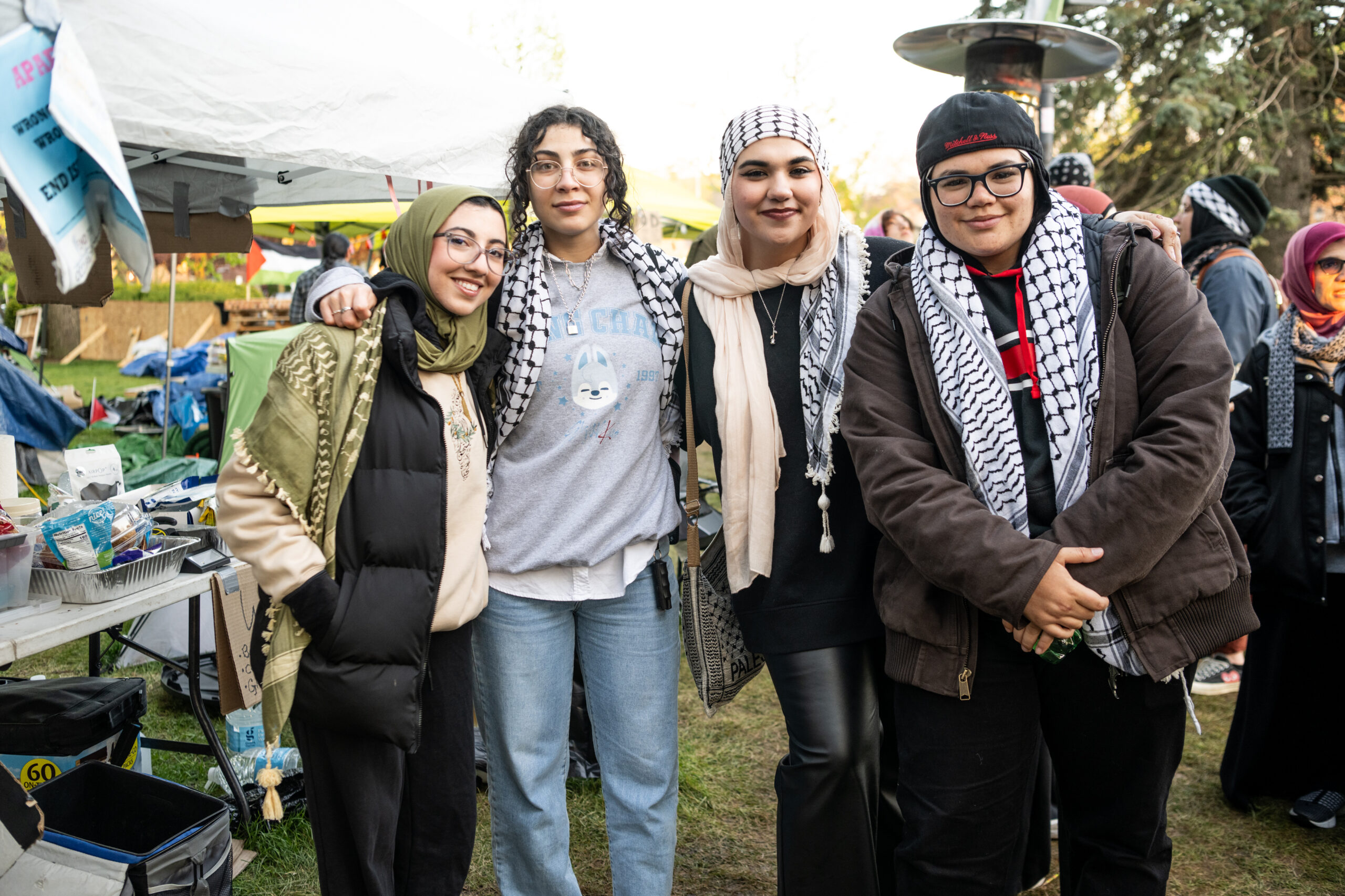
Photo by Mouna Photography
Alhourane: They are teaching us. I wasn’t reading all the details of the situation until my children started posting things. We are learning a lot from them. They are educating us as they are educating themselves. The way they are learning and acting on that knowledge, that’s what makes me proud.

Photo by Mouna Photography
Ilili: We even went to Chicago last week to a protest. A friend’s daughter is a student at Northwestern. We went to support her, too. We are not just supporting our own kids; we are supporting others.
Alhourane: I see all of them as our kids. Everyone should be proud of these kids.
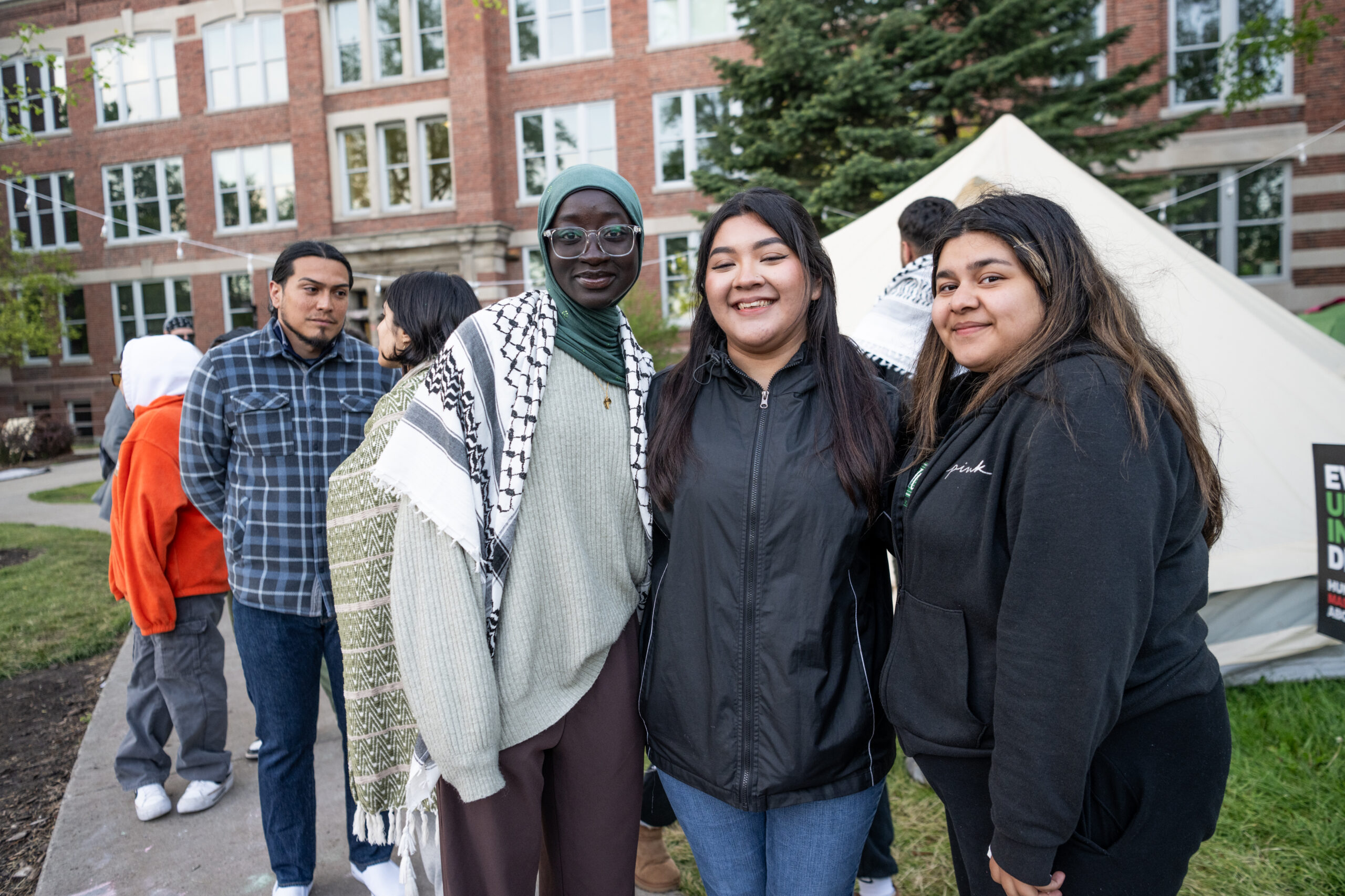
Photo by Mouna Photography
What are your hopes for the encampment?
Ilili: I really hope UWM will listen to them and accept their demands. We really want a ceasefire now. We don’t want more people to suffer. They’ve had enough.
Alhourane: They should listen. It’s not one voice; it’s many. And not just here in Milwaukee. People are protesting from Texas to New York, everywhere.
